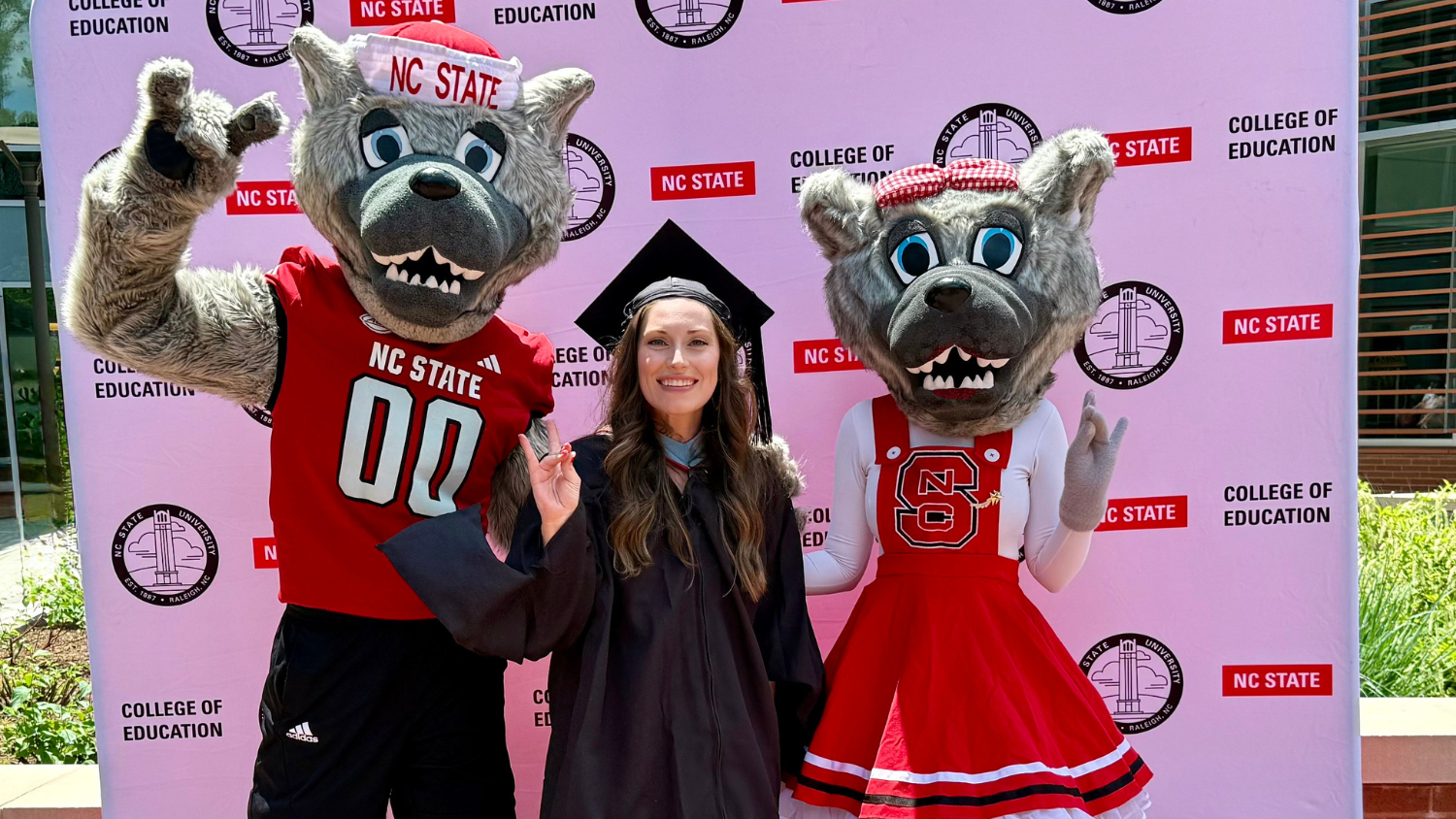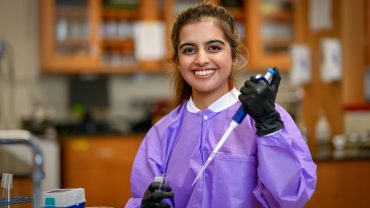Science - Secondary Education
The Science - Secondary Education Master of Arts in Teaching (MAT) program is an accelerated teacher licensure program that leads its graduates to both an initial teaching license and a master’s degree in as little as a year and a half (full-time).
Read more about Professional Licensure.
In the Science - Secondary Education MAT, teachers expand their knowledge and impact as they learn how to integrate practice with theory in today’s culturally rich and technology-enhanced classrooms.
The MAT program is a teaching licensure program that is now offered 100% online and leads to both an initial teaching license in North Carolina and a master’s degree in as little as a year-and-a-half (full-time, including summers).
Please note that the MAT’s focus is on preparation to teach in K-12 schools rather than an advanced credential for practicing teachers or a precursor to research-oriented doctoral studies in education.
Our Science - Secondary Education MAT program prepares science teachers for grades 6-12 by building off a candidate’s strong background in the laboratory sciences.
Our program is strong in the use of technology as candidates develop expertise with mobile and computer-based technologies used for learning and teaching science. Candidates are expected to engage as scholars to synthesize research literature on learning and teaching science and use scientific inquiry methods in their planning, instruction and assessment of students.
In North Carolina, science teachers are licensed comprehensively, meaning that any licensed science teacher can teach any science course a school offers. In practice, teachers generally specialize in the life sciences or chemistry, or the physical sciences or earth/environmental sciences, but preparation for a license requires significant experiences in multiple fields of science. Having a broad-based knowledge of the sciences also gives teachers the opportunity to teach about the natural interdependency of the sciences.
The semester after completing a minimum of 15 credit hours, students must:
- Have maintained a minimum average of 3.0 in all coursework
- Pass a criminal background check
Eligibility
Applicants must have:
- Bachelor’s degree from a college or university that holds regional accreditation from a recognized accrediting agency such as SACS;
- 3.0 GPA or higher in prior work, as required by the Graduate School;
- Minimum passing score of 100 on the TOEFL AND an official course-by-course evaluation from an accredited foreign credential evaluation service required for applicants with non-U.S. degrees*;
- Meet the specific requirements of content area or grade level. See specialty coursework under curriculum for content standards.
In the absence of a content degree, 24 semester hours/credits in content relevant to the area in which you wish to teach are needed. Candidates who are missing content area courses can take them at a local college or university or as a PBS (post-baccalaureate student) at NC State prior to admission.
If an applicant does not have the 24 content area credits needed to be accepted into the program, he or she can still enroll in the first graduate classes as a Non-Degree student (NDS) while completing the full 24 content-specific hours and transfer those credits into the degree program. Up to 12 credit hours with a grade of “B” or better can be transferred into a master’s degree program (either completed as an NDS student or at another institution).
* Please note that the Master of Arts in Teaching is a Distance Education program, so students on university-sponsored visas are not eligible for this program. Please contact the Office of International Services with any questions.
Plan of Study
MAT participants can undertake this program full-time or part-time. Depending on the content area, the program is 30 credit hours, including a full-semester student teaching experience.
*MAT students must also be located in NC due to state licensure requirements.
Career Prospects
Science teachers provide the foundational knowledge middle and high school students need to pursue careers in medicine, pharmacy, technology, environmental science and chemistry—just to name a few of the many careers rooted in scientific discovery.





